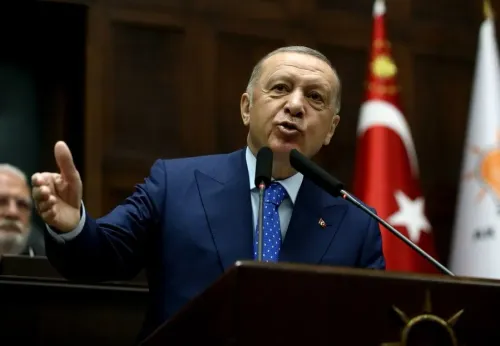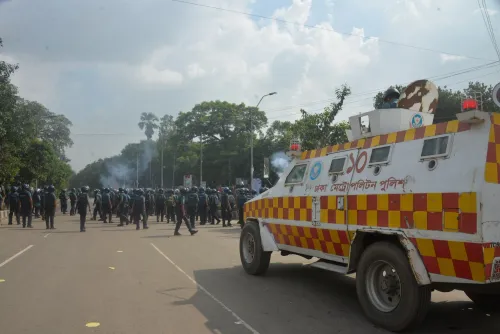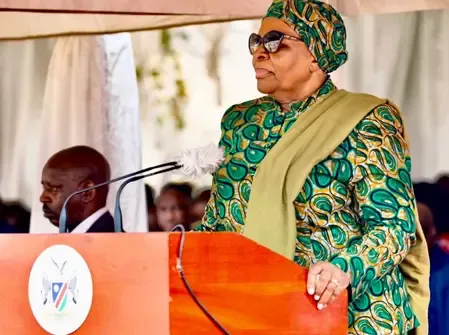Is NCP Ready for a ‘Ballot or Bullet Revolution’ in Bangladesh Before 2026 Elections?

Synopsis
Key Takeaways
- NCP warns of a potential 'ballot or bullet revolution.'
- Political tensions are escalating as the 2026 elections approach.
- Accusations against BNP and leftist parties highlight deep divisions.
- Concerns about the interim government's role in the election process.
- Urgent call for reforms to uphold democratic integrity.
Dhaka, Nov 11 (NationPress) As political strife escalates in Bangladesh in anticipation of the upcoming elections, the National Citizens Party (NCP) has issued a stark warning, indicating its readiness for a “ballot revolution” or a “bullet revolution”, according to local media reports.
During a discourse held at the party's headquarters in Dhaka, NCP Chief Coordinator Nasiruddin Patwary expressed his concerns amid rising political discord in the nation.
“Should Bangladesh maintain its course on the democratic path, the NCP is poised for a ballot revolution. However, if it leads to violence, we are also prepared for a bullet revolution,” the NCP leader was quoted by Bangladesh’s prominent newspaper, The Daily Star.
Patwary directed a warning towards the Bangladesh Nationalist Party (BNP), stating, “If the BNP opposes reform, its outcome will be similar to that of Sheikh Hasina.”
He accused leftist factions of betraying the working class, claiming they have merely used the red flag as a “political façade”.
“The leftist parties have become the BNP’s vote bank within the so-called Consensus Commission, selling their principles for a handful of seats,” he asserted.
In a veiled reference to the radical Islamist party Jamaat-e-Islami, Patwary remarked, “We disbelieve in politics that exploits religion for votes—like merely modifying the constitution or making appearances at madrasas for publicity.”
Meanwhile, NCP Joint Convener Sarwar Tushar accused both the BNP and Jamaat of obstructing essential institutional reforms, prioritizing political advantage over national advancement.
Tushar criticized the Muhammad Yunus-led interim government for its management of the July Charter, stating, “After drafting a roadmap for the July Charter, the government should not have transferred the responsibility to political parties. Neutrality should not equate to inaction, yet the government has become dormant.”
Last week, the NCP accused a faction within the interim government of conspiring to undermine the February 2026 elections.
During a press conference in Dhaka, NCP leaders asserted that the government had shifted the responsibility for executing the July Charter, including the referendum, onto political entities instead of taking proactive steps, deeming this action as “unrealistic.”
“We perceive a trend aimed at derailing both the reform process and the elections,” quoted NCP member secretary Akhtar Hossain during the media briefing.
As Bangladesh faces increasing uncertainty and political unrest leading up to next year’s elections, the parties that once collaborated with Yunus to depose the democratically elected Awami League government, led by Sheikh Hasina, now find themselves in a clash over reform initiatives.









